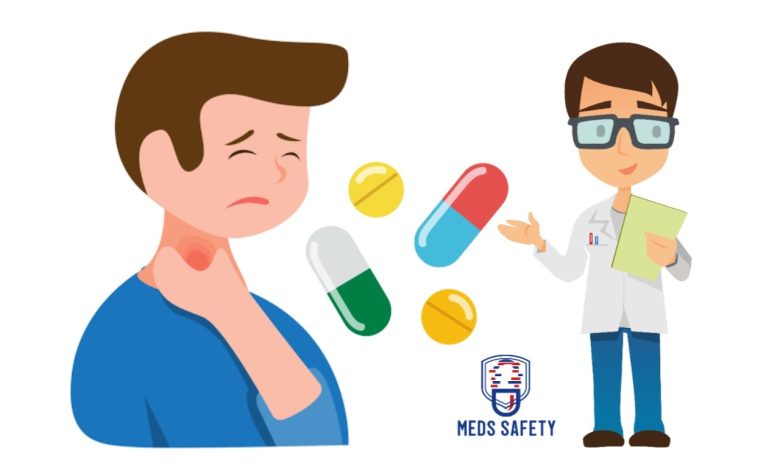Strep Throat Treatment Without Antibiotics (7 Alternatives)

Strep throat is a prevalent bacterial infection primarily caused by group A Streptococcus bacteria, specifically Streptococcus pyogenes. It commonly affects children and adolescents, but adults can also be susceptible to the infection. The hallmark symptoms of strep throat include a sore and scratchy throat, difficulty swallowing, swollen tonsils, fever, and sometimes even white patches or pus on the tonsils.
For many years, antibiotics have been the standard treatment for strep throat. Antibiotics, such as penicillin or amoxicillin, are effective in killing the bacteria responsible for the infection, thereby shortening the duration of the illness and reducing the risk of complications. When prescribed and taken correctly, antibiotics can speed up the recovery process and prevent the spread of the infection to others.
However, the overuse and misuse of antibiotics have led to concerns about antibiotic resistance. Bacteria can develop resistance to these drugs, rendering them less effective over time. Additionally, antibiotics may cause side effects in some individuals, such as stomach upset or allergic reactions.
As a result, medical professionals have become more cautious about prescribing antibiotics for every case of sore throat. They may perform a rapid strep test or a throat culture to confirm the presence of Streptococcus bacteria before prescribing antibiotics. This targeted approach helps ensure that antibiotics are reserved for cases where they are truly necessary, minimizing the risk of resistance and reducing unnecessary antibiotic exposure.
For mild cases of strep throat or in situations where antibiotics are not prescribed, there are several alternative treatments and home remedies that can help manage symptoms and support the body’s natural healing process. In this article, we will discuss those alternative approaches to managing strep throat without resorting to antibiotics.
How to Treat Strep Throat Without Antibiotics
Strep throat can be effectively managed without resorting to antibiotics. While antibiotics have traditionally been the go-to treatment, alternative approaches can help alleviate symptoms and support the body’s natural healing process.
1. Pain Relief: Over-the-counter pain relievers such as ibuprofen or acetaminophen can provide relief from the soreness and discomfort associated with strep throat. These medications also help reduce fever, making the recovery process more bearable.
2. Saltwater Gargles: Gargling with warm saltwater multiple times a day is a time-honored remedy for soothing a sore throat. The saline solution helps reduce swelling, ease irritation, and flush out bacteria from the throat.
3. Herbal Teas and Honey: Herbal teas, including chamomile and slippery elm, have natural soothing properties that can ease throat irritation. Adding a teaspoon of honey to the tea not only enhances the taste but also provides antibacterial properties that may aid in fighting off the infection.
4. Stay Hydrated: Drinking plenty of fluids, especially warm liquids like soups and broths, is essential for keeping the throat moist. Adequate hydration helps soothe inflammation and supports the body’s natural immune response.
5. Rest: Giving the body sufficient rest is crucial for a speedy recovery from strep throat. Rest allows the immune system to concentrate on fighting the infection effectively.
6. Throat Lozenges: Sugar-free lozenges or throat sprays can offer temporary relief by lubricating the throat and reducing irritation. Some lozenges may contain menthol or eucalyptus, providing a cooling sensation and added comfort.
7. Probiotics: Incorporating probiotic-rich foods like yogurt or taking probiotic supplements can promote a healthy balance of beneficial bacteria in the throat and gut. This may support the body’s natural defense mechanisms against strep bacteria.
However, it is crucial to understand that strep throat is a bacterial infection, and if left untreated, it can lead to severe complications such as rheumatic fever or kidney problems. As a result, it is vital to seek medical attention and consult a healthcare professional for a proper diagnosis and treatment plan, even if antibiotics are not the immediate choice.
Non-antibiotic treatments can be used in conjunction with medical advice or as supportive measures to alleviate symptoms while the body’s immune system combats the infection. By following the prescribed treatment plan and taking appropriate precautions to prevent the spread of the infection, individuals can ensure a smoother recovery from strep throat while minimizing the risk of complications.
When to see the doctor with Strep throat
It is essential to seek medical attention promptly if your situation does not or if you are experiencing severe symptoms of a strep throat infection. Here are some specific situations when you should see a doctor:
1. Severe Throat Pain: If you are experiencing severe throat pain that makes it difficult to swallow, speak, or breathe, it is crucial to seek immediate medical attention.
2. Persistent Symptoms: If your sore throat and other symptoms persist for more than a few days or worsen despite trying home remedies, it is time to see a doctor.
3. High Fever: If you have a high fever (typically over 101 degrees Fahrenheit or 38.3 degrees Celsius) along with a sore throat, it is advisable to consult a healthcare professional.
4. Difficulty Swallowing or Breathing: If you have difficulty swallowing or breathing due to swollen tonsils or throat inflammation, seek medical attention promptly.
5. Presence of White Patches or Pus: If you notice white patches or pus on your tonsils or the back of your throat, it could be a sign of strep throat, and you should see a doctor.
6. Swollen and Tender Lymph Nodes: If you feel swollen and tender lymph nodes in your neck, it could indicate an infection, including strep throat, and should be evaluated by a healthcare provider.
7. Red Rash: In some cases, strep throat may be accompanied by a red rash, especially in younger children. If you notice a rash, it’s essential to consult a doctor.
8. Exposure to Strep Throat: If you have been in close contact with someone who has been diagnosed with strep throat, it’s a good idea to see a doctor for evaluation, even if you don’t have symptoms yet.
9. Recurrent Strep Throat: If you have a history of recurrent strep throat infections, it’s crucial to discuss this with your doctor to explore possible underlying causes and appropriate management.
10. Compromised Immune System: If you have a weakened immune system due to a medical condition or medications, it’s important to seek medical attention promptly to manage strep throat effectively.
Remember that strep throat is a bacterial infection that can lead to serious complications if left untreated. Seeking early medical attention can help confirm the diagnosis, determine the appropriate treatment plan (which may include antibiotics if necessary), and reduce the risk of potential complications. If you experience any concerning symptoms or have doubts about your condition, it’s always best to consult a healthcare professional for proper evaluation and care.





